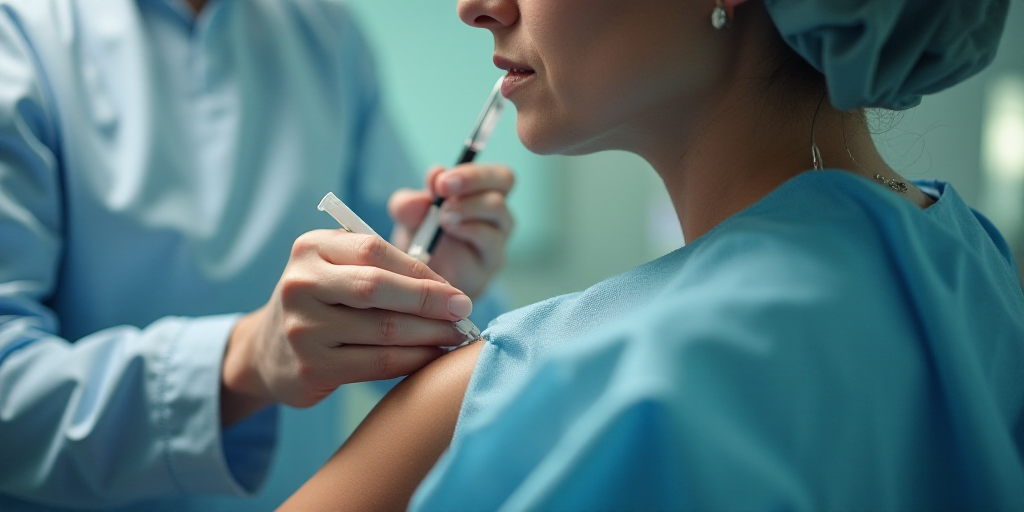Background on the Organizing Body and Its Relevance
The Pan American Health Organization (PAHO) announced that from April 26 to May 3, countries in the Americas aim to administer approximately 66.5 million vaccine doses, including 2.7 million against measles.
Dr. Jarbas Barbosa, Director of PAHO, explained that from April 26 onwards until May 3, countries in the region will administer around 66.5 million vaccine doses that “save lives and increase the likelihood of healthy, productive lives.” He highlighted that for 23 years, PAHO has been a cornerstone of public health in the region, facilitating the vaccination of 1.2 billion people.
Vaccination Campaigns Across the Americas
Guided by the slogan “Your decision makes a difference, immunization for all,” countries will organize vaccination drives to prevent the spread of diseases. Specific campaigns include:
- Brazil: A measles immunization campaign for indigenous communities during Indigenous Peoples’ Month.
- Colombia: A nighttime campaign to provide more opportunities for working mothers and fathers.
- Guatemala: A guide on HPV vaccination in Mayan language to promote the vaccine within that community.
Impact of Vaccines Over the Years
In the past 50 years, vaccines have saved an estimated 154 million lives worldwide. In the Americas, they have reduced infant mortality by 41%. As PAHO’s leader stated, “Beyond the statistics, vaccines translate into healthier lives, stronger health systems, and more resilient societies.”
Fragile Progress Amid Concerns
Dr. Barbosa emphasized that the progress against preventable diseases is fragile, as the region currently faces measles outbreaks—one of the world’s most contagious diseases affecting children primarily.
- Currently, the region is struggling with measles outbreaks, with only 95% coverage of the MMR (measles, mumps, and rubella) vaccine needed to avoid imported cases not being susceptible. However, this target is not being met, with over 350,000 cases reported globally in 2024, according to the WHO.
- During this week, 2.7 million doses will be administered to curb localized measles outbreaks in six countries, including Mexico. In 2025, 2,300 people in Mexico contracted measles compared to 215 the previous year, with three fatalities and one death still under investigation.
- Additionally, there has been a rise in yellow fever cases in the region, with four countries reporting 189 cases and 74 deaths so far in 2025, compared to 61 cases and 30 deaths throughout 2024.
PAHO’s Goals and Initiatives
PAHO aims to eliminate cervical cancer related to the HPV virus by becoming the first region globally to do so. They have also improved electronic records and geographic information systems in certain countries to monitor coverage and identify gaps, enabling targeted campaigns.
“Maintaining high coverage levels is critical to achieving and preserving the elimination of diseases,” Barbosa stressed. He also mentioned that PAHO’s Regional Rotating Mechanism (RRM) provides high-quality vaccines at affordable prices for regional countries, avoiding a 75% price increase for the 13 most common vaccines.
Final Remarks
Although the United States and Argentina have announced intentions to withdraw from the WHO, PAHO remains a separate organization. However, they regret these decisions and hope for transparent and productive dialogue between these countries and the WHO to encourage their return, as this is crucial for global security, disease elimination efforts, emergency health departments, and vaccinations.
Week of Vaccination in the Americas Details
23rd Week of Vaccination in the Americas (SVA) and 14th World Immunization Week
- April 26 to May 3, 2025: The 23rd Week of Vaccination in the Americas (SVA) and the 14th World Immunization Week will take place with the call to action: “Your decision makes a difference. Immunization for all.”
- The regional launch will occur on April 28 in Panama.
- April 26 to May 3: Mexico will conduct its First National Week of Vaccination in 2025.
Vaccines Administered During the Week
- Infant: Tuberculosis (BCG), hepatitis B, hexavalente, rotavirus, and pneumococcal
- Childhood (1-9 years): MMR (measles, mumps, and rubella) and pneumococcal boosters, DTaP (diphtheria, tetanus, and pertussis)
- Adolescents: HPV (human papillomavirus), Td (tetanus and diphtheria), MMR (measles, rubella), and hepatitis B
- Pregnant women: Tdap (tetanus, diphtheria, and pertussis) from week 20 of pregnancy
- Adults: Boosters for Td, MMR, and hepatitis B based on risk factors
- Older adults: Pneumococcal vaccine
- Healthcare workers: MMR and hepatitis B boosters






